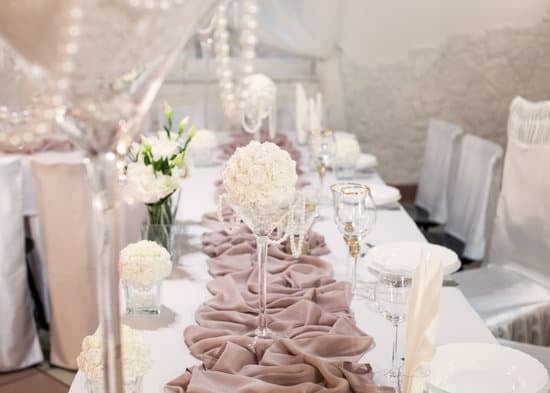How much on average is a wedding? When planning a wedding, one of the first questions that comes to mind is the cost. In this article, we will delve into the breakdown of wedding expenses and explore the factors that influence the average cost of a wedding. From location to hidden costs and practical budgeting tips, we will provide valuable insights for anyone preparing for their big day.
The cost of a wedding can vary significantly depending on various factors. We will examine how location influences overall expenses and uncover hidden costs that many couples may not initially consider when creating their wedding budget. By understanding these factors, individuals can better prepare and plan for the financial investment required for their dream wedding.
Additionally, we will provide real examples of wedding budgets to illustrate how costs can be allocated across different aspects of the event. Whether it’s finding creative ways to cut costs or exploring the value of investing in a dream wedding, this section will offer practical guidance for individuals looking to navigate the financial aspect of planning a memorable celebration.
Whether you’re working with a tight budget or simply want to ensure you’re making wise financial decisions, we have you covered with valuable tips and insights.
Factors Affecting the Average Cost of a Wedding
The cost of a wedding can vary greatly depending on a number of factors. One of the primary influences on the average cost of a wedding is the number of guests. Typically, the more guests you have, the more you can expect to spend on things like food, drinks, and favors. Another major factor is the location of the wedding. Urban areas generally have higher costs for venues and services, while rural areas may offer more affordable options.
The time of year in which the wedding takes place can also impact its cost. Peak wedding season typically falls between late spring and early fall, so getting married during these months may come with a higher price tag. Additionally, the choice of venue and type of wedding will affect costs – a lavish black-tie affair at an upscale hotel will naturally be more expensive than a casual outdoor ceremony and reception.
It’s worth noting that weddings can often be as expensive or as budget-friendly as you make them. Setting priorities and determining where you’re willing to splurge versus save can play a significant role in how much your overall wedding will cost. By carefully considering these factors and making informed decisions, couples can better manage their expenses and plan their dream wedding within their means.
| Factors Affecting Wedding Cost | Description |
|---|---|
| Number of Guests | The more guests, the higher expenses for food, drinks, etc. |
| Location | Urban areas tend to have higher costs for venues and services |
| Time of Year | Peak wedding season may lead to higher expenses |
Average Wedding Cost by Location
When it comes to planning a wedding, one of the most significant factors that can greatly influence the overall expense is the location. The average cost of a wedding can vary significantly depending on where you choose to tie the knot. Factors such as the cost of living, popularity of the location for weddings, and local vendor pricing all play a role in determining how much you can expect to spend.
Urban vs. Rural
One major factor that affects the average cost of a wedding is whether you choose to have your celebration in an urban or rural setting. Urban areas tend to have higher costs for venues, catering, and other services due to higher demand and operating expenses. On the other hand, rural areas often offer more affordable options for couples looking to save on their wedding budget.
Popular Wedding Destinations
Couples who dream of saying “I do” at popular destination wedding locations should be prepared for higher costs compared to hosting their event closer to home. Popular tourist destinations, such as beach resorts or historic landmarks, often come with premium price tags for wedding venues and services.
Regional Cost Differences
Different regions within a country can also have varying average wedding costs. For example, weddings in major cities are generally more expensive than those in smaller towns or suburban areas. It’s important for couples to research and understand the regional cost differences when planning their wedding budget.
Ultimately, understanding how location influences the overall expense of a wedding is crucial for budget-conscious couples. By carefully considering these factors and doing thorough research, couples can make informed decisions about where to host their special day while staying within their budget constraints.
Hidden Costs of a Wedding
Planning a wedding involves not only the obvious expenses such as venue, catering, and attire but also hidden costs that are often overlooked. Understanding these hidden costs and budgeting for them is crucial to avoid financial stress during the wedding planning process.
Vendor Tips and Gratuities
One of the commonly overlooked expenses in a wedding budget is vendor tips and gratuities. It is customary to tip vendors such as the photographer, DJ, hair and makeup artists, and even the transportation team. These tips can add up quickly, so it’s important to account for them in your overall budget.
Postage and Stationery
Many couples forget to include the cost of postage and stationery in their wedding budget. This includes save-the-dates, invitations, RSVP cards, thank you notes, and other stationery items. Additionally, postage for mailing these items can also be a significant expense.
Unexpected Decor and Supplies
While couples often have a specific decor budget planned out, unexpected decor needs or last-minute supplies can arise. It’s important to allocate some funds for these unforeseen expenses. Whether it’s extra linens for tables or decor elements that were not initially accounted for, having a contingency fund for such items can prevent overspending.
Being aware of these hidden costs and factoring them into your overall wedding budget will help you manage your finances more effectively and ensure a smoother planning process. By being prepared for these additional expenses, you can avoid last-minute financial stress and focus on enjoying your special day without any unexpected financial surprises when everything underlines how much on average is a wedding.
Tips for Budgeting and Saving on Your Wedding Costs
Planning a wedding can be an exciting but expensive venture. On average, a wedding in the United States costs about $33,000, but this number can vary widely depending on location, the number of guests, and personal preferences. To help manage these costs, here are some tips for budgeting and saving on your wedding expenses.
One way to save money on your wedding is to prioritize what is most important to you and allocate a larger portion of your budget to those elements. Whether it’s the venue, food, or photography, identify your top priorities and be willing to compromise on other aspects of the wedding.
Another tip for budgeting is to consider having a smaller guest list. The cost per guest adds up quickly when considering food, drinks, and favors. By trimming down your guest list and keeping the celebration intimate, you can significantly reduce expenses.
Furthermore, consider getting creative with do-it-yourself projects instead of purchasing expensive decorations or hiring professional services. From homemade centerpieces to designing your own invitations, there are plenty of opportunities to add personal touches while saving money.
| Tips for Budgeting and Saving | Wedding Costs |
|---|---|
| Prioritize what is most important | Allocate a larger portion of your budget to those elements |
| Consider having a smaller guest list | Significantly reduce expenses related to food and drinks |
| Get creative with do-it-yourself projects | Add personal touches while saving money. |
Real Wedding Budget Examples
Planning a wedding can be an overwhelming experience, especially when it comes to budgeting for the various expenses involved. To give you a better idea of how much on average is a wedding, here are some real wedding budget examples that highlight the different costs involved. Keep in mind that these figures may vary depending on your location and specific preferences, but they can serve as a helpful reference point as you plan your own special day.
Here are some real wedding budget examples to consider:
1. The Venue: $5,000 – $10,000
2. Catering and Bar Services: $7,000 – $12,000
3. Wedding Attire (Dress, Suit, Accessories): $2,000 – $5,000
4. Decorations and Flowers: $2,000 – $6,000
5. Photography and Videography: $3,000 – $6,000
6. Entertainment (DJ or Band): $1,000 – $3,500
Keep in mind that these numbers can vary significantly based on your location and specific preferences. For example, weddings in major metropolitan areas tend to be more expensive than those in rural areas. Additionally, the size of your guest list and the level of extravagance you desire will also impact the overall cost of your wedding.
Consider using these real wedding budget examples as a starting point for creating your own personalized budget that reflects your unique vision for your special day. Remember that flexibility is key when it comes to wedding planning – finding ways to cut costs without sacrificing quality can help you stay within your budget while still creating a memorable event for you and your loved ones.
How to Plan a Wedding on a Tight Budget
Planning a wedding on a tight budget can be challenging, but with some creativity and flexibility, it is possible to have the wedding of your dreams without breaking the bank. Here are some creative ways to cut costs and save money while planning your special day:
- DIY Decorations: Instead of purchasing expensive decorations, consider making your own centerpieces, bouquets, and other décor items. Not only is this a cost-effective option, but it also adds a personal touch to your wedding.
- Opt for Off-Peak Dates and Times: Consider having your wedding during the off-peak season or on a weekday, as venues often offer lower prices during these times. Additionally, having a brunch or afternoon wedding can be more budget-friendly than an evening affair.
- Choose a Non-Traditional Venue: Instead of a traditional banquet hall or hotel, consider hosting your wedding at a public park, beach, or even in someone’s backyard. These unique venues often come with lower rental fees and may even allow you to bring in your own vendors.
In addition to these creative ways to cut costs, it’s important to prioritize what is most important to you and allocate your budget accordingly. For example, if having delicious food is a top priority for you, consider splurging on catering while cutting costs in other areas such as décor or entertainment.
It’s also helpful to enlist the help of friends and family who may be able to contribute their skills or resources. Whether it’s having a friend bake your wedding cake or borrowing decorations from someone you know, utilizing these personal connections can help reduce expenses without sacrificing the quality of your special day. Ultimately, with careful planning and resourcefulness, it is possible to plan a beautiful wedding on a tight budget.
Overall, there are numerous ways to cut costs while planning a wedding on a tight budget. By getting creative with decorations and venue options and enlisting the help of friends and family, couples can have their dream weddings without spending an exorbitant amount of money. Additionally, prioritizing what matters most and being flexible with dates and times can all contribute to significant cost savings. With proper planning and resourcefulness, couples can achieve their ideal weddings without breaking the bank.
Is It Worth the Expense? Exploring the Value of Investing in Your Dream Wedding
When it comes to planning a wedding, many couples find themselves wondering if the expense is truly worth it. After considering all the factors that affect the average cost of a wedding, such as location, guest count, and personal preferences, it’s important to explore the value of investing in your dream wedding. While weddings can be expensive, they are also a once-in-a-lifetime event that symbolizes the commitment and love between two people.
One of the key considerations when assessing the value of a wedding is recognizing that it is a deeply personal and emotional experience. The memories created on this special day will last a lifetime, and for many couples, there is immense value in creating a celebration that reflects their unique love story. It’s not just about the numbers; it’s about creating an experience that holds sentimental value for both the couple and their loved ones.
Another aspect to consider is the lasting impact of investing in your dream wedding. This event marks the beginning of a new chapter in life, and for some, there is no price tag on starting this journey with an unforgettable celebration.
What matters most is finding a balance between creating meaningful memories and being mindful of financial constraints. Ultimately, only you can determine how much you are willing to invest in your dream wedding based on what it means to you and your partner.
Frequently Asked Questions
What Is a Good Budget for a Wedding?
The budget for a wedding depends on many factors such as location, number of guests, and personal preferences. On average, a good budget for a wedding can range from $20,000 to $35,000.
Is $10,000 Enough for a Wedding?
Whether $10,000 is enough for a wedding depends on the couple’s expectations and priorities. It may be possible to have a small or simple wedding within this budget, but larger or more elaborate weddings may require more funds.
Is $5000 Enough for a Wedding?
A budget of $5000 for a wedding may be sufficient for those who are willing to prioritize and make compromises. It may be challenging to cover all expenses such as venue, catering, and other services within this amount without careful planning and cost-cutting measures.

I have been involved in marriages for over 20 years helping couples and singles understand more about them.





